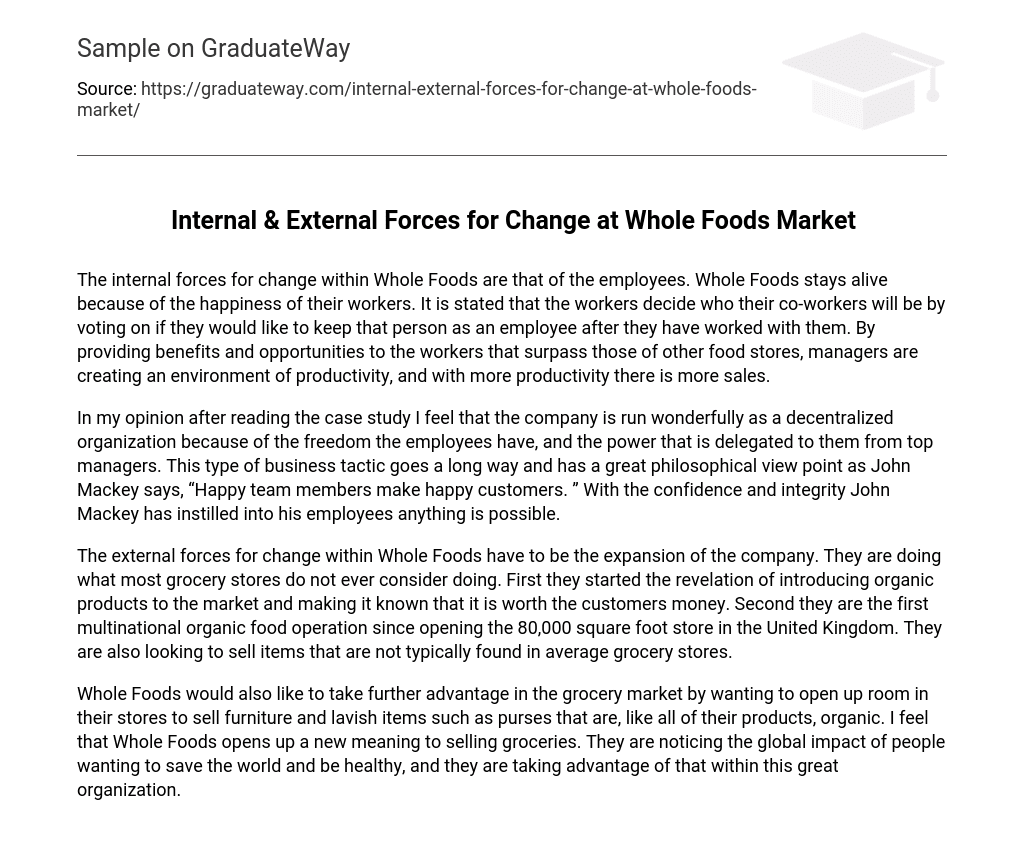The employees of Whole Foods play a vital role in driving change within the company. The success of Whole Foods greatly depends on the well-being and satisfaction of its workers. Notably, employees have influence over the hiring process as they vote on whether to keep their co-workers as employees after working together. Furthermore, compared to other food stores, managers at Whole Foods go the extra mile by offering additional benefits and opportunities to their employees. This fosters a productive environment that ultimately leads to higher sales.
After analyzing the case study, I strongly believe that the company operates efficiently as a decentralized organization. This can be attributed to the employees’ freedom and the delegation of power from top managers. Such a business approach is highly valuable and aligns with John Mackey’s philosophy that happy team members lead to satisfied customers. The confidence and integrity instilled by John Mackey have the potential to achieve anything with the employees.
The company of Whole Foods has undergone external changes due to its expansion. This includes introducing organic products and emphasizing their value to customers. Moreover, Whole Foods has achieved the distinction of being the first multinational organic food operation by establishing an 80,000 square foot store in the United Kingdom. Furthermore, they have set a goal to offer items that are uncommonly found in regular grocery stores.
Whole Foods aims to broaden its footprint in the grocery industry by adding furniture and luxury products such as organic purses to their stores. This strategy marks a fresh perspective on grocery retailing, leveraging the increasing worldwide focus on environmental preservation and wellness. Whole Foods seizes these trends to establish a distinct and exceptional shopping journey.





